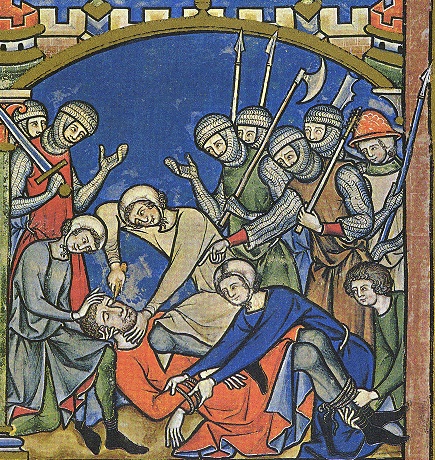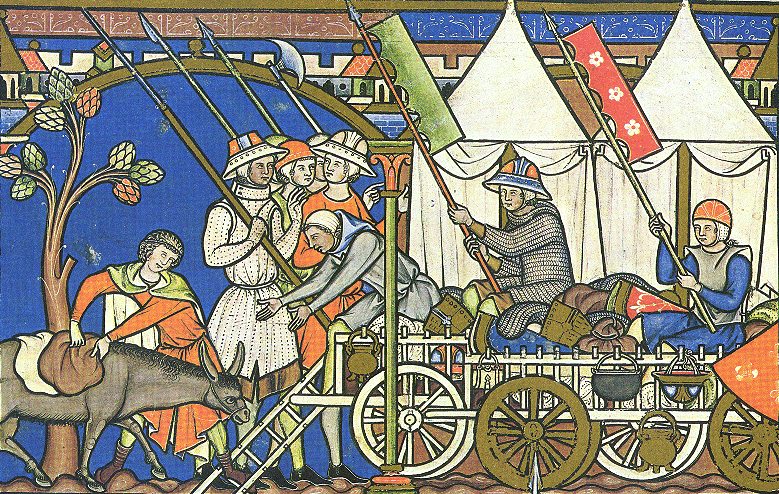The problem is this: I am planning two kits. One kit will be a knight hospitaliers kit somewhere between 1100-1250. Our group hasn't picked a date yet but this is where we are looking at for the moment. I also want a late 14th century kit because, well, they're just awesome :D And there's a lot of 14th century re-enactment going on in The Netherlands and Belgium.
I am not idependently wealthy (yet!) so I want to be able to re-use as many parts of kit as I can between these two.
I am thinking about getting a haubergeon with half or three-quarter sleeves that comes down to mid-thigh or slightly lower. Flat rings riveted with round/domed rivets. That should be fine for my 14th century kit under a coat-of-plates or a corrazina. I asked one of the more knowledgeable members of out Hospitaliers group if I could get away with such armour in the earlier Hospitaliers era and he thinks it's okay, but I am having trouble backing this up.
I went through the entire morgan bible looking for images of people with such haubergons. I have found five plates that show this. Three of them are archers but two show soldiers wielding a mace and spear of some sort.
Is there any more evidence about such haubergeons in the age of mail? Do you think I can get away with having one haubergeon for both kits? Riveted mail is expensive so I really want to buy just one. Also, if there is more evidence of shorter sleeves, what else did people wear in the age of mail? Leather vambraces or just a long-sleeved gambeson? And what did they use for hand protection?
Thanks in advance! Below are the plates I found in the Morgan bible.

Soldier with mace center-right

Soldier with pike in center
Crossbow archer bottom right [ Download ]
Archer top-center [ Download ]
Archer in the center [ Download ]